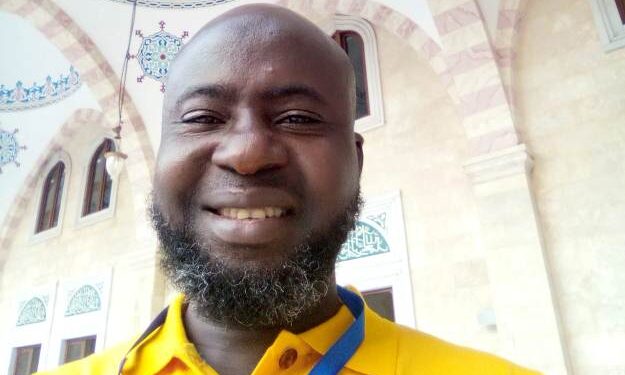In the name of God, the compassionate, the merciful
Why Ghana’s Embrace of Islamic Banking is a Win for All Citizens – Not Just Muslims
In a bold move to diversify Ghana’s financial sector and attract new investment opportunities, the Bank of Ghana (BoG) has appointed Prof. John Gatsi, a renowned economist and Dean of the University of Cape Coast Business School, as a key advisor on implementing Islamic finance. This decision signals Ghana’s readiness to integrate ethical, interest-free banking into its economy. This initiative promises to expand financial inclusion, attract foreign investment, and offer alternative funding options for businesses and individuals.
Why This Appointment Matters
Prof. Gatsi’s selection is a strategic one. With extensive expertise in finance, economics, and policy advisory, he is well-positioned to guide the BoG in structuring a robust, inclusive, and competitive Islamic banking framework. His appointment also reassures stakeholders that Ghana’s approach will be market-driven, transparent, and aligned with global best practices, not influenced by religious dogma.
Also Read: Brad Pitt opens up about battle with alcoholism: Says he needed to wake up
Debunking the Myths: Islamic Finance is for Everyone
Despite its name, Islamic banking is not exclusive to Muslims. Its core principles—profit-sharing (Mudarabah), asset-backed financing (Murabaha), and prohibition of exploitative interest (Riba)—are universal ethical finance concepts that appeal to:
Muslims who avoid conventional interest-based banking. Also, Christians, secularists, and ethical investors who prefer risk-sharing models over debt-driven systems. Businesses seeking stable, asset-based financing are available in our country. For example, Countries like the UK, South Africa, Nigeria and Kenya—none of which are Islamic states—have successfully adopted Islamic finance without compromising their secular identities.
The Economic Benefits for Ghana
Financial Inclusion for Millions
Over 16% of Ghana’s population is Muslim, many of whom remain unbanked due to religious restrictions. Islamic banking opens doors for them. Non-Muslims also benefit from ethical, low-risk financial products. Attracting Foreign Investment, the global Islamic finance market is worth over $3 trillion. Ghana can tap into Sukuk (Islamic bonds) for infrastructure projects, as Nigeria did with its $2 billion Sukuk road fund.
Stabilizing the Financial System
Islamic finance discourages reckless speculation and debt bubbles, promoting real economic activity over predatory lending.
Addressing the Critics: Secularism is Not Under Threat
Some critics, like Dr. Palgrave Boakye-Danquah, argue that Islamic banking undermines Ghana’s secular constitution. This claim is unfounded because: The BoG is not imposing Sharia law—it is regulating a financial product, just like mobile money or fintech.
Christian-owned banks and faith-based investments already exist without threatening secularism. Prof. Gatsi’s leadership ensures an economically sound—not religious—approach.
Prof. Gatsi
In a nutshell, the BoG’s appointment of Prof. Gatsi is a pragmatic, forward-thinking decision that aligns with Ghana’s goals of financial diversification and inclusive growth. Rather than fearing change, Ghanaians should embrace this opportunity to strengthen the economy for everyone. The future of banking in Ghana is not about religion—it’s about choice, stability, and prosperity. And Allah knows best!
What do you think about Islamic banking in Ghana? Share your thoughts in the comments or tweet using #GhanaIslamicFinance
YAHAYA ILIASU MUSTAPHA.
The writer is the Ghana representative of the Alhuda Centre of Islamic Banking and Economics, Dubai, and an Islamic Banking and Finance patron and advocate in Ghana. He is also the founder of ‘Islamic Finance TV Gh’ on Facebook, TikTok, and YouTube. He holds a BSc. in Islamic banking, economics, and finance from the International Open University a BA. in Political Science from the University of Ghana, and a Diploma in Education from the University of Winneba. We would want to collaborate and partner with any persons or organizations who are willing to explore this field in Ghana and beyond.
Email: yahaya0246873726@gmail.com
https://www.facebook.om/Yahaya.iliasu.94
0506218343 / WhatsApp 0246873726


